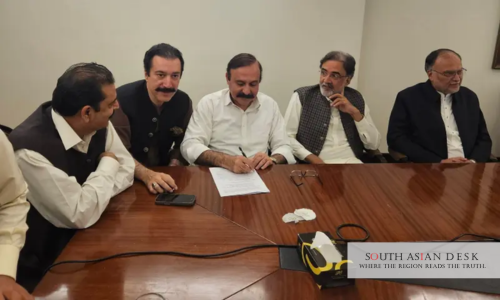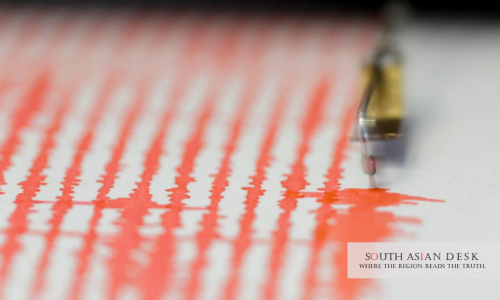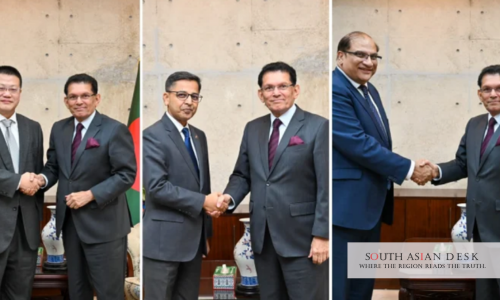MUZAFFARABAD: The Pakistani government signed an agreement with the Joint Awami Action Committee (JAAC) in Azad Jammu and Kashmir (AJK) on Saturday, resolving protests that erupted on September 25 and claimed at least 10 lives. The deal addresses key demands, restores normalcy, and includes compensation for victims. Prime Minister Shehbaz Sharif announced the resolution at 4:35 PM, marking a turning point in the Kashmir protests resolved saga.
This accord matters across South Asia because it stabilises a flashpoint region central to Pakistan’s foreign policy. AJK’s unrest risked escalating cross-border tensions with India, which claims the territory. By prioritising dialogue, Pakistan reinforces its narrative of self-determination for Kashmiris, countering accusations of internal repression. The resolution bolsters federal unity, vital for economic recovery in a nation facing inflation and debt. It sets a precedent for handling regional grievances through negotiation, potentially influencing similar disputes in Gilgit-Baltistan or Balochistan.
Shehbaz Sharif Welcomes Kashmir Peace Accord
Prime Minister Shehbaz Sharif lauded the agreement as a triumph for Pakistan and AJK. He stated all issues have been resolved amicably. “All conspiracies and rumours now stand buried,” Sharif said in an official statement. He emphasised the government’s commitment to Kashmiri rights. “We had always protected rights of the Kashmiri people and in future also their rights will be ensured,” he added.
Sharif congratulated the negotiation teams. He described the pact as an achievement that restores peace and normalcy. This aligns with his earlier directive on October 2 to exercise restraint and seek a lasting solution. The prime minister appealed to residents to ignore misinformation. His intervention underscores the federal priority on AJK stability.
Planning Minister Ahsan Iqbal echoed Sharif’s sentiments on X. “Pakistan, AJK and democracy wins,” Iqbal posted. He credited local and national leadership for the peaceful outcome. “The Joint Action Committee raised voice of citizens, and the government under Prime Minister Shehbaz Sharif took these voices seriously,” Iqbal wrote. He pledged collaboration for good governance in AJK.
Iqbal highlighted the protesters’ role in Pakistan’s national cause. “Their voice carries immense weight,” he noted. The minister committed to empathy over confrontation. This marks Shehbaz Sharif welcomes Kashmir peace accord as a model for future resolutions.
Details of the Agreement in Kashmir Protests Resolved
The 12-decision pact plus 13 additional points addresses violence and core demands. It registers first information reports under the Anti-Terrorism Act for incidents on October 1 and 2. A judicial commission will probe where needed.
Compensation forms a key pillar. Families of the deceased receive PKR 1 million each, matching law enforcement benefits. Victims with gunshot injuries get PKR 1 million. One family member per deceased victim secures a government job within 20 days.
The agreement settles disputes over elite privileges and reserved seats for refugees from Indian-occupied Kashmir. It responds to the JAAC’s 38-point charter, though full implementation timelines remain pending. Parliamentary Affairs Minister Tariq Fazal Chaudhry announced the signing on X. “Our negotiation delegation has signed on a final agreement with the AJK Joint Action Committee,” he wrote. “The protesters are returning to their homes. All roads have reopened.”
Chaudhry called it a victory of peace. The deal ends the shutter-down strike and communications blackout that paralysed AJK since late September.
Negotiation Teams Involved
The federal team comprised Tariq Fazal Chaudhry, Kashmir Affairs Minister Amir Muqam, Interprovincial Coordination Minister Rana Sanaullah, Planning Minister Ahsan Iqbal, Religious Affairs Minister Sardar Yousaf, former adviser Qamar Zaman Kaira, ex-AJK president Masood Ahmed Khan, and PPP leader Raja Pervez Ashraf.
AJK representatives included Education Minister Diwan Ali Chugtai and Local Government Minister Faisal Rathore. JAAC leaders Raja Amjad, Shaukat Nawaz Mir, and Anjum Zaman Awan signed for the committee.
Talks spanned two rounds over two days. They followed a breakdown last week that sparked rival group clashes.
Background to the Unrest
Protests began on September 25 over the AJK government’s failure to abolish elite privileges. Demonstrators demanded implementation of the JAAC’s charter, including subsidy hikes on wheat and electricity.
What started peacefully turned violent. Clashes with law enforcement left 10 dead and scores injured. The Human Rights Commission of Pakistan condemned excessive force on October 3. A communications blackout exacerbated tensions. Shutdowns halted business and travel. On October 2, the government offered talks after fatalities mounted.
The unrest highlighted economic grievances in AJK. Residents pay full tariffs despite federal subsidies elsewhere. This fueled calls for equitable resource distribution. Sharif took notice on October 2. He expressed deep concern and directed ministers to Muzaffarabad. His focus on restraint prevented further escalation.
Impact on Regional Stability
The resolution buries immediate threats. Roads reopened immediately post-signing. Protesters dispersed without further incidents. In South Asia, this eases pressure on Pakistan’s Kashmir narrative. India often cites internal issues to question Islamabad’s claims. The accord demonstrates responsive governance.
Economically, it allows AJK to resume operations. Federal aid, including potential PKR 500 million in subsidies, could follow. Shehbaz Sharif welcomes Kashmir peace accord by prioritising public service. It averts a humanitarian crisis in a region hosting over four million.
What’s Next for Implementation
Authorities must appoint the judicial commission swiftly. Job allocations and compensations require 20-day deadlines. The government pledges ongoing dialogue. Iqbal stressed development focus. Monitoring mechanisms will track charter progress.
With Kashmir protests resolved, attention turns to preventing recurrence. Federal-AJK ties strengthen, but sustained reforms are essential. In conclusion, the accord signals hope. Prime Minister Sharif’s leadership ensures Kashmiri voices endure. As normalcy returns, Pakistan eyes broader peace in the divided territory.
Published in SouthAsianDesk, October 4th, 2025
Follow SouthAsianDesk on X, Instagram, and Facebook for insights on business and current affairs from across South Asia.






